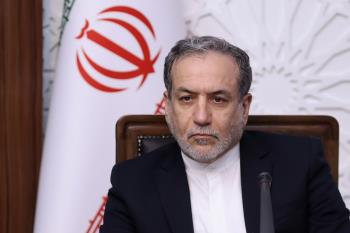Alwaght- The idealist and ever-controversial Crown Prince of Saudi Arabia Mohammed bin Salman just against the expectations appears to have ahead difficult times in the governance as he enters the third year of serving in the post. Since his assumption of the post in June 2017, he seemed to have many obstacles in his way to the ambitions. He needs to solve them one by one, many analysts agree.
In his most important step, he launched a purge campaign inside the ruling house, removing the dissent royalty and potential trouble makers. He removed some of them from their posts and jailed others to, at least temporarily, remove the threats that he thought could block his way to the throne.
But against the young naïve prince’s anticipation, the regional and international development went a different way. The current conditions, many agree, mark the most difficult period of his life. Three grand weak spots of him are definable in this period:
Coronavirus outbreak plays as a setback for the inexperienced crown prince
Certainly, the most important plan that the prince thinks can facilitate his way to the throne is the ambitious Saudi Vision 2030, unveiled in 2016 by him.
The plan is designed to on the one hand stabilize his power at home and on the other hand present to the world Saudi Arabia as an economic, political, and military power. The initiative already had its own stumbling blocks ahead of realization. It now has a barricade ahead: Coronavirus pandemic, an uninvited guess that can wreak havoc to the crown prince’s plan overall.
Since December last year, all aspects of human life, especially the economic conditions, were hit hard due to the emergence of the COVID-19 pandemic. Stay-at-home orders largely cut the demands in many trade areas. Production decreased as a result. This meant that the demand for oil as an energy source in the production process dropped sharply. The drop in demand meant free fall of the oil prices, which meant bin Salman no longer has the once-huge source of income to finance his programs. This was not the only source of income lost by the Arab kingdom. The country also lost substantial income from religious tourism as it hosts the holy Islamic sites that have round-the-clock visitors from across the world. These big losses will cause big troubles for Riyadh.
Oil war with Russia and the US abandoning of the hardline prince
In addition to coronavirus crisis, bin Salman has another factor that stands also as an Achilles heel for him in his way of materialization of goals. It is the oil war with Russia, which is among the oil supply heavyweights. The oil price war with Moscow costs him losing the US support as he insisted on pressing ahead with his clash with Russia’s Putin.
As a result of the decrease in the oil demand because of the coronavirus outbreak, an oil war erupted between Russia and Saudi Arabia. As they pressed with larger output, the oil prices plummeted. None of them showed compromises until the formerly $70 oil fell below $20 and even lower.
The troubles for bin Salman did not end even when the two large suppliers reached a deal to cut output to restore the prices. Last week, the West Texas Intermediate oil fell to -$39 a barrel, exhibiting the Saudi prince’s Achilles heel. Reacting to the situation, many US senators, mainly Republicans from the oil states of Texas, Alaska, and North Dakota attacked the Arab kingdom, accusing it of initiating an economic war. They prepared a draft law according to which the US forces should immediately withdraw from Saudi Arabia.
Additionally, many analysts believe that the Saudi-American relations are now tied to the personal interest of bin Salman in the Saudi rulers. They argue that in the case of Trump’s loss in the November 3 presidential election, the Washington-Riyadh relationship in its traditional form will end.
If the Democratic Joe Biden wins the presidency, a dark age of the bilateral relations could start. In a Democratic debate, Biden said he would isolate Saudi Arabia.
“I would make it very clear we were not going to in fact sell more weapons to them,” Biden said. “We were going to in fact make them pay the price [for killing outspoken Saudi journalist Jamal Khashoggi], and make them, in fact, the pariah that they are.”
These remarks reveal that even the US support to the king-in-waiting is not forever. Likely, the hardline Saudi prince will be left alone by Washington in the upcoming months.
Yemen quagmire
Another weak spot that can interrupt the implementation of the Saudi plans is the defeat of the kingdom in Yemen war which is not less than a huge quagmire for Riyadh. When bin Salman in March 2015 declared the Saudi-led Arab coalition’s war against the resistant forces in Sana’a, he had no clue the war will bring him nothing but defeat. Now and after five years, Yemen has turned into a swamp for the Saudis in which they neither can win the war nor want to accept the defeat at the end of the road.



























